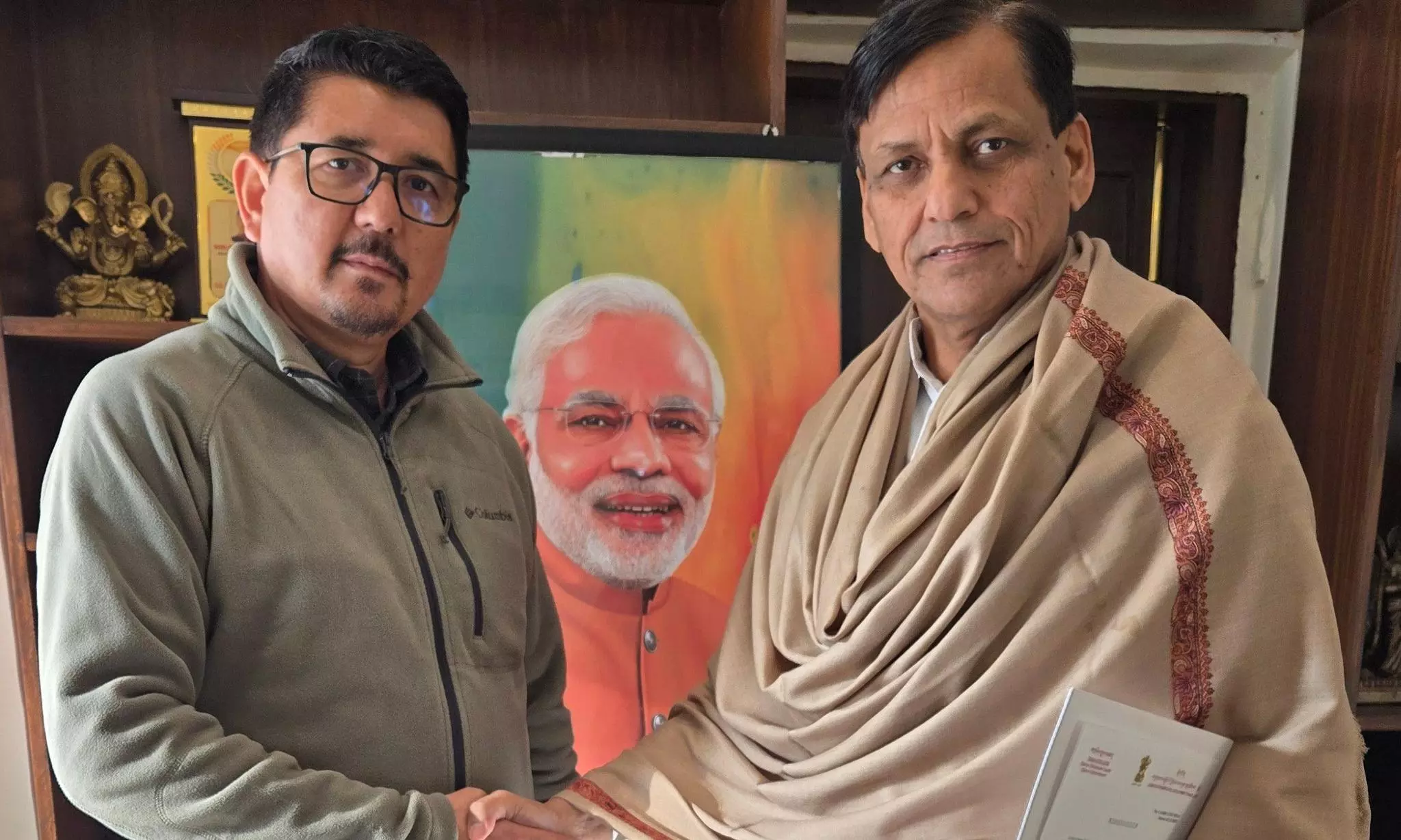
Ladakh meet: 95% gazetted officers’ posts to be reserved for locals
Ladakh organisations and committee headed by Nityanand Rai to discuss issue of implementation of agreed point and other demands in the next meeting on Jan 15

The Centre has agreed to reserve 95 per cent of gazetted officers’ posts for locals in Ladakh, its MP Mohmad Haneefa said after a meeting of the Leh Apex Body and Kargil Democratic Alliance with Union Minister Nityanand Rai in Delhi on Tuesday (December 3).
The Ladakh bodies met Rai to discuss their demands for statehood, the Union Territory’s inclusion in the Sixth Schedule of the Constitution, and the setting up of an exclusive public service commission for the region, sources said.
The organisations have also been demanding two Lok Sabha seats — one for Kargil and one for Leh. The Union Territory currently has just one Lok Sabha seat — Ladakh.
Also read: Ladakh | Regret over long-sought UT status, with no visible road ahead
Implementation after January meet
Haneefa, who attended the meeting, said it was agreed upon that 95 per cent of gazetted officers’ posts will be reserved for the locals in Ladakh.
“It’s a big news for the people of Ladakh. People have been praying for some good news from this meeting and now their prayers have been answered. The MHA has agreed to reserve 95 per cent gazetted officers’ jobs for locals,” he told reporters after the meeting.
Both sides will discuss the issue of the implementation of the agreed point and other demands in the next meeting on January 15.
Also read: Fewer jobs, growing frustration: Ladakh fast running out of options
Result of Delhi protest
The meeting came after the Centre assured Ladakhi activists led by climate activist Sonam Wangchuk, who staged protests in Delhi after leading a march from Ladakh, of considering their demands.
The government has appointed a high-powered committee (HPC) for Ladakh headed by Rai to discuss the measures needed to protect the region’s unique culture and language, taking into consideration its geographical location and strategic importance.
The HPC has also been formed for the protection of land and employment, measures for inclusive development and employment generation in the region, measures related to the empowerment of the Ladakh Autonomous Hill Development Councils of Leh and Kargil and constitutional safeguards that could be provided.
Watch: Jigmat Paljor interview | 'Centre has ignored Ladakh continuously'
New status as UT
Ladakh was earlier part of the erstwhile state of Jammu and Kashmir, and the Assembly had four representatives from the region.
The provisions of Article 370 of the Constitution, which gave a special status to Jammu and Kashmir, were abrogated on August 5, 2019, and the erstwhile state was bifurcated into the Union territories — Jammu and Kashmir and Ladakh.
According to the provisions of the Jammu and Kashmir Reorganisation Act, Jammu and Kashmir has been made a Union Territory with a Legislative Assembly and Ladakh a Union Territory without any Assembly. Several organisations of Ladakh were demanding a separate Union Territory for the region for decades.
New districts
The BJP-led Centre had assured a delegation from Ladakh in December last year that it was committed to fast-tracking the development of the Union Territory and meeting the aspirations of the people in the region.
In the recent past, the Ladakh organisations protested at different locations, including Delhi, highlighting their key demands.
In August, the Centre created five new districts in Ladakh: Zanskar, Drass, Sham, Nubra and Changthang. Being a Union Territory, Ladakh comes under the direct administrative control of the Union Home Ministry.
(With agency inputs)

